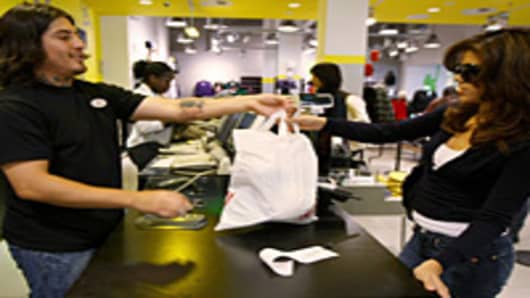"With three years of pent-up demand, a savings rate starting to normalize, and a turn in the job market, followed by an initial turnaround in the economy, it's little wonder that we're seeing some strong growth—despite the unemployment rate," he said.
That showed itself in the final numbers for the holiday season.
The retail industry's trade group, the National Retail Federation, said retail industry sales for the holiday period rose 5.7 percent from 2009, far above even their increased holiday sales forecast of 3.3 percent, which was issued in December.
The NRF forecast excludes automobile, gasoline and restaurant sales as well as online sales.
With online sales added into the mix, holiday sales jumped 7.1 percent year-over-year, according to Johnson. That exceeded his forecast, on the same basis, of 5 percent.
Johnson's forecast was above twice the consensus view of about 2.3 percent growth for the holiday season. Johnson expects families will shop again, while continuing to focus on value and avoiding shopping on credit.
But Dales remains concerned that consumer balance sheets will restrain spending in the months ahead.
"Consumers really want to pay down their existing debt and put their balance sheets in order," he said.
Dales expects there that we will occasionally see bursts in consumer spending as we did during the holiday season, but then spending will "sort of fizzle out."
"This is exactly what happened in Japan," he said. "...There are long-term issues that will be around for some time."
Questions? Comments? Email us at consumernation@cnbc.com



